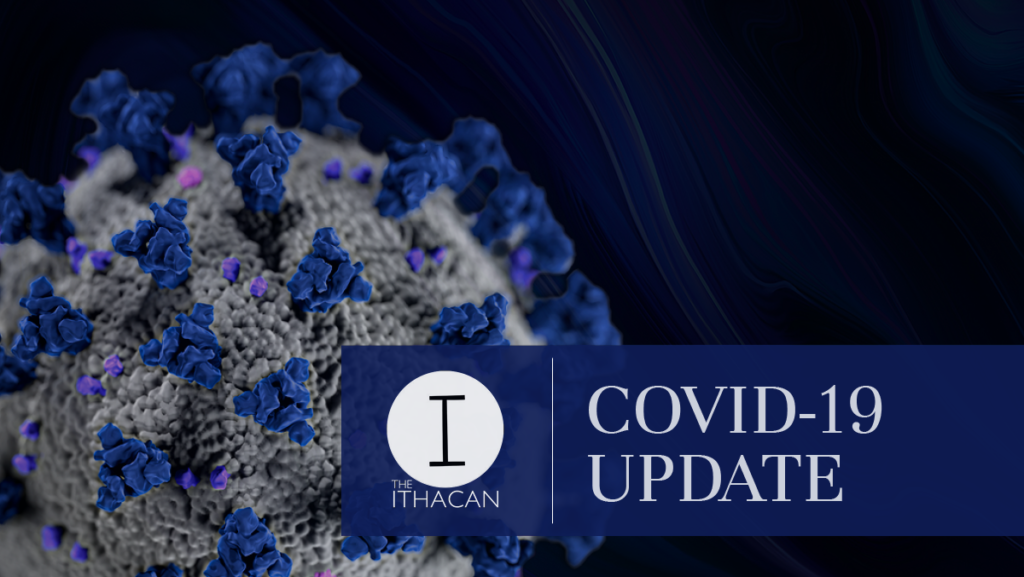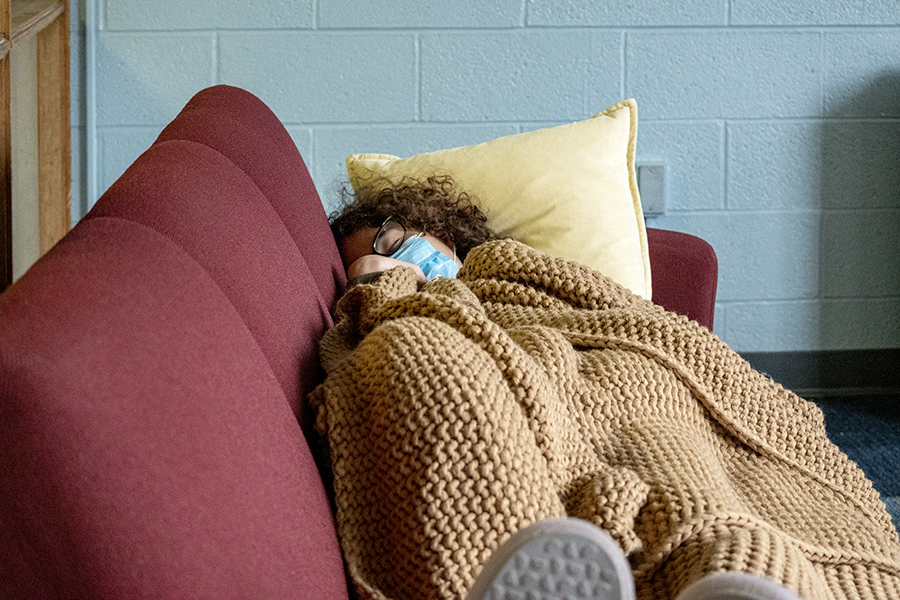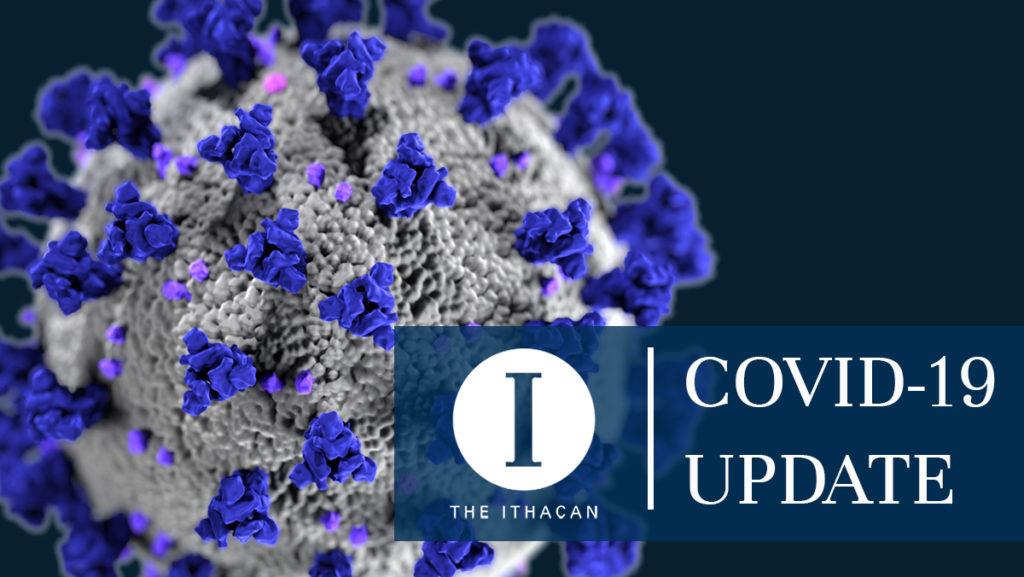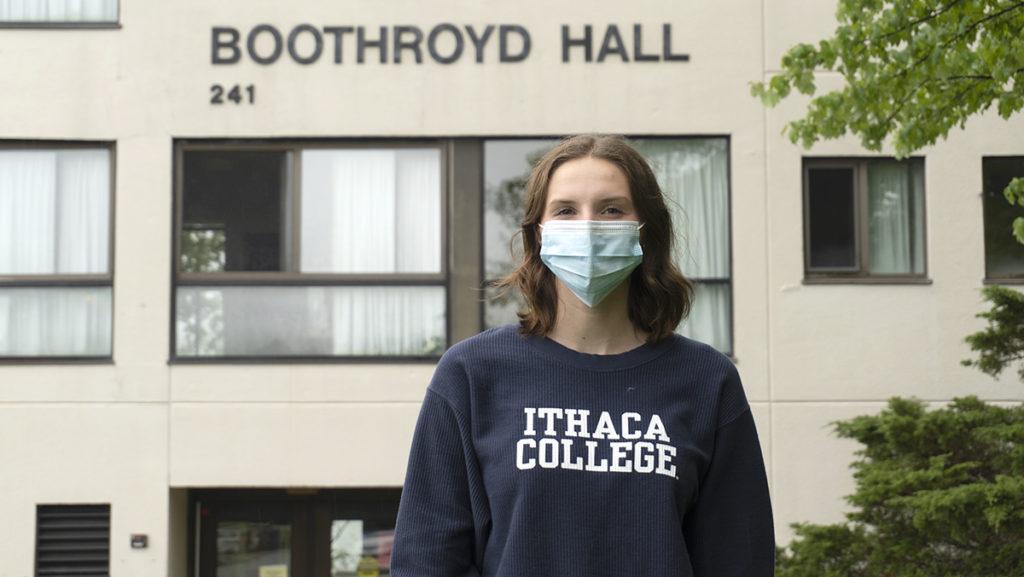Ithaca College students with certain medical conditions are now eligible for a COVID-19 vaccine, according to new New York state guidelines.
Ellyn Sellers-Selin, physician and medical services director of the Center for Counseling, Health and Wellness, sent an email to students Feb. 19 detailing new information about the COVID-19 vaccine and guidelines for students following vaccination. Gov. Andrew Cuomo also released new testing and positivity rate guidance for colleges and universities.
Eligibility
New York state is in Phase 1a and 1b of the vaccine rollout process. Students with certain medical conditions may now be eligible to receive a vaccine. The new category includes: cancer; chronic kidney disease; pulmonary disease, chronic obstructive pulmonary disease, asthma, pulmonary fibrosis, cystic fibrosis and 9/11–related pulmonary diseases; intellectual and developmental disabilities including Down Syndrome; heart conditions including but not limited to heart failure, coronary artery disease, cardiomyopathies or hypertension; immunocompromised state including but not limited to solid organ transplant or from blood or bone marrow transplant, immune deficiencies, HIV, use of corticosteroids, use of other immune weakening medicines or other causes; severe obesity and obesity; pregnancy; sickle cell disease or Thalassemia; Type 1 or 2 diabetes; cerebrovascular disease; neurologic conditions including but not limited to Alzheimer’s Disease or dementia; and liver disease.
Students can check eligibility on the Tompkins County Health Department website.
Protocols After Vaccination
Students may feel mild to severe symptoms after receiving their second vaccine dose. However, this will create challenges when filling out the daily health screening. Students who felt fine the day before their second dose and have symptoms the day or two after the vaccine can fill out “no” to having COVID-19 symptoms on the screening. Vaccinated students are still required to fill out the screening, participate in testing twice a week and adhere to COVID-19 guidelines.
Students who have severe symptoms should not come to campus and can call the Hammond Health Center to determine next steps.
The Centers for Disease Control and Prevention (CDC) said people exposed to someone with COVID-19 do not have to quarantine if they are fully vaccinated, are within three months of their last dose of the vaccine and have remained asymptomatic since the exposure.
After vaccination, students should send a copy of their vaccination card to the Hammond Health Center to have it added to their immunization record.
Updated COVID-19 Guidance
Cuomo released new guidance for colleges on infection rates and testing protocols. The guidance states that schools testing at least 25% of on-campus students, faculty and staff weekly are not required to pause operation unless their positivity rate is higher than 5% in a rolling 14-day period. Schools not testing at least 25% of the population on campus weekly must pause operation if the positivity rate is higher than 5% or if 100 individuals test positive — whichever is less — in a rolling 14-day period.
If schools hit that threshold, they must transition to remote learning for at least two weeks. At the end of two weeks, local health departments will determine if the school can reopen for in-person operation. Dining halls should operate on takeout only, and extracurricular and athletic activities will be suspended.
“This new guidance will not only incentivize colleges and universities to ramp up their testing efforts, it will also give these schools more flexibility before having to shift to remote learning and pause campus activities so more schools can remain open without jeopardizing safety,” Cuomo said.
During the February 14–20 week, there were 7,053 total tests and one new positive on campus, according to the college’s COVID dashboard. The positivity rate was .01% during this period. The college is planning to relax some COVID-19-related restrictions due to a low positivity rate on campus.
COVID-19 testing for the spring semester is done through a saliva self-collection process. Students must be tested twice a week. Employees in high–contact positions must provide a saliva sample one time per week. Employees in low–contact positions must provide a saliva sample every other week.












